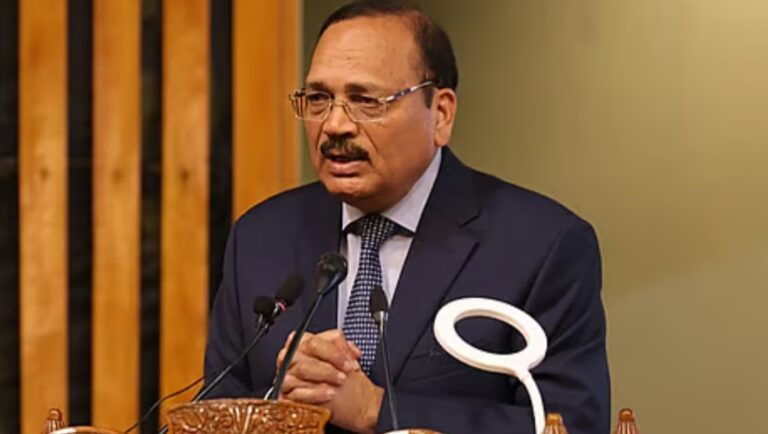In a significant development for the Indian judiciary, Justice Surya Kant has been formally appointed as the next Chief Justice of India (CJI). The announcement was made by Union Law and Justice Minister Arjun Ram Meghwal, who confirmed that President Droupadi Murmu has exercised her constitutional authority under Article 124(2) of the Constitution to appoint Justice Kant as the 50th Chief Justice of India, with effect from November 24, 2025.
Justice Kant will succeed Chief Justice D.Y. Chandrachud, whose tenure concludes on November 23, 2025. The appointment marks a transition of leadership at the highest judicial forum in the country and is expected to bring a new wave of judicial approach and administrative priorities within the Supreme Court.
A Distinguished Judicial Journey
Justice Surya Kant’s elevation to the top judicial office comes after a long and illustrious career spanning more than four decades. Born on February 10, 1962, in Haryana, Justice Kant began his legal career in the early 1980s after completing his LL.B. from Maharshi Dayanand University, Rohtak. He built his reputation as a highly competent and principled advocate, primarily practicing in the Punjab and Haryana High Court.
He was designated as a Senior Advocate in 2001, and his exceptional command over constitutional and administrative law led to his elevation as a Judge of the Punjab and Haryana High Court in 2004. In 2018, he was appointed as the Chief Justice of the Himachal Pradesh High Court, where his tenure was marked by judicial efficiency and progressive decisions focusing on environmental governance, public accountability, and citizens’ rights.
Justice Kant was elevated to the Supreme Court of India in May 2019, where he has since been a part of several landmark benches. His judgments and observations often reflect a balanced blend of constitutional morality, social sensitivity, and pragmatic reasoning.
Judicial Philosophy and Notable Judgments
Justice Surya Kant’s judicial approach is often described as people-centric, with a focus on ensuring that the law serves as an instrument of justice rather than a mere procedural mechanism. He has played a pivotal role in several cases involving environmental protection, education reforms, and public interest litigation.
Among his widely recognized contributions is his emphasis on judicial accountability and transparency in governance. He has consistently advocated that the judiciary must not only interpret the law but also uphold the constitutional vision of equality and justice for all.
As a Supreme Court judge, Justice Kant has been part of benches that dealt with issues such as criminal procedure reforms, land acquisition disputes, and administrative fairness. His balanced approach has earned him respect both within the judiciary and among the legal fraternity.
The Road Ahead: Expectations and Challenges
As Justice Surya Kant prepares to take charge as the next Chief Justice of India, he is expected to preside over the Supreme Court at a time when the institution faces multiple challenges — including case backlogs, judicial vacancies, and the need for technological modernization in the justice delivery system.
One of his likely priorities will be to strengthen access to justice through the use of digital platforms and to enhance transparency in judicial appointments. His prior experience as an administrator in the Himachal Pradesh High Court is likely to serve him well in steering the Supreme Court’s functioning with efficiency and foresight.
Furthermore, under his leadership, the judiciary is expected to continue its progressive stance on constitutional rights, gender justice, and environmental protection — areas where Justice Kant has shown deep engagement and empathy.
Conclusion
Justice Surya Kant’s appointment as the 53rd Chief Justice of India marks not only a continuation of judicial leadership but also a moment of reflection on the evolving nature of India’s justice system. His vast experience, grounded values, and commitment to constitutional principles are expected to guide the judiciary in addressing emerging social, economic, and technological challenges.
As the nation looks forward to his tenure beginning November 24, 2025, there is optimism that the Supreme Court under Justice Surya Kant will uphold its role as the guardian of the Constitution, ensuring justice remains both accessible and equitable for every citizen of India.
